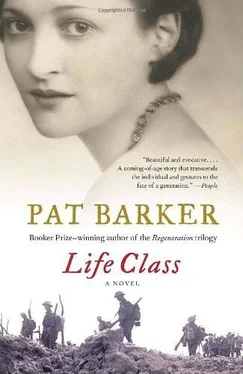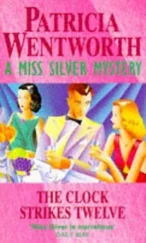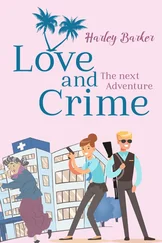The doors banged shut. The ambulance started to grind and bump along, sweeping round in a sharp turn, then accelerating away. He could feel the movements as if he were driving. A row of wounded men sat beside the stretchers, their jaws juddering with shock. He stared up at the stretcher above him and saw a patch of blood, spreading.
‘Lewis?’
Muttered words, then a groan as the ambulance bounced along. Despite the pain in his leg, Paul didn’t believe he was injured. Bloody fools, tying him down like this.
‘Lewis?’
The red stain was spreading. Still the groans and gabbled words went on. ‘Mum,’ he heard. And again, ‘Mum?’ Then silence. Groping above his head, he found Lewis’s hand and touched it. It was still warm. He thought he felt an answering pressure before the fingers went slack.
He was in the Salle d’Attente. He had a vague memory of being lifted out of the ambulance, talking too much, waving his arms, spit flying. He couldn’t understand why they were putting him into bed when there were so many patients to be attended to. They seemed to want him to get undressed and when he wouldn’t they cut his uniform off. His left thigh was covered in blood.
‘It’s nothing,’ he said, but still they kept pushing him down and all the orderlies were there, their familiar faces strange as he looked up at them from the bed. They were cutting his breeches off, easing bloody cloth away from the wound as so often he’d done to other people, uncovering just such a mess as this one on his left thigh. He stared at it, bewildered, and his bewilderment increased his deafness so when Burton (was it Burton?) leaned over and spoke to him his lips moved but he made no sound, opening and shutting his mouth like a goldfish. Cool fingertips on his thigh searched for soil in the wound and then the fish lips swelled and filled his whole vision and he slipped over the edge into unconsciousness and the whistling roar of the exploding shell which seemed to be lodged inside his skull followed him down into the dark.
London was drab, full of mud-coloured people. As the night closed in and the street lamps were lit, their blue painted globes seemed not so much to shed light as to make darkness visible. Nelson on his column looked out over a city that had moved closer to its origins, a settlement on an estuary whose fragile lights kept at bay a vast darkness.
Walking down Regent Street to the Café Royal, Paul stumbled and almost fell. It had been a long day, his knee was starting to trouble him. He hated the atmosphere in London now, it was so different from last August. Then there had been crowds, heat, dust, cheering, the burnt smell of London foliage in late summer. Now there were these trampling shadows with their blue-tinged skin. Oh, and everywhere, the posters. One in particular pursued him form street to street. A jack-booted German officer trod on a dead woman’s bare breasts, while behind them a village burn to Beside the picture was a letter from a serving British soldier.
We have got three girls in the trenches with us, who came for protection. One has no clothes on, having been outraged by the Germans … Another poor girl has just come in having had both her breasts cut off. Luckily I caught the Uhlan officer in the act and with a rifle shot at 300 yards killed him. And now she is with us but poor girl I am afraid she will die. She is very pretty and only about 19 and only has her skirt on.
Nothing Paul had heard or seen in Belgium suggested that this scenario was probable or even possible, but then, it’s difficult to persuade young men to lay down their lives to preserve the balance of power in Europe. Some other cause had to be found, more firmly rooted in biological instinct. Pretty young girls with their blouses ripped off did the trick nicely. God, the cynicism of it.
Not a bad painting, though. In fact all the posters he’d seen were good. Elinor might complain that painting was being dismissed as irrelevant, but it seemed to him that the exact opposite was true. Painting, or at least its near relation — print-making — had been recruited.
He should have asked Tonks what he thought about the posters. Tonks was the only person he’d seen so far, and there, too, he’d thought Elinor was wrong. Her portrait of a Tonks unswervingly dedicated to the teaching of art while the war crashed and rumbled round his ears didn’t hold up for a second. Tonks had gone back to medicine, and now spent more time working in a hospital than he did at the Slade.
‘What else could I do?’ he said. ‘I’m a surgeon, for God’s sake. I have to do something.’
The sight of Tonks bending over his paintings — the familiar question mark of his curved spine — could still inspire fear in Paul. He waited for the whip-crack of contempt, but it never came. Instead, Tonks put his hand over his eyes. ‘I’ll see what I can do.’
‘There’s this too.’
Tonks took the drawing to the window. It was of a young man who had had the whole of his lower jaw blown off by a shell. It was several minutes before Tonks turned to face Paul again. ‘I don’t see how you could ever show that anywhere.’
‘No, I know. But I wanted you to see it.’
Tonks mentioned names and promised letters of introduction. He would do everything he could to help but his time was limited. He was expecting to go to France himself soon. When, at the end of the corridor, Paul looked back, Tonks was still standing at the doorway to his room, watching him go. Perhaps from the window too, though Paul didn’t look up, merely smiled at the men in their wheelchairs and hurried past.
A few minutes later, in Russell Square, great rosy-cheeked, raw-boned lads charged and twisted bayonets. He stopped to watch. Afterwards they lay on the grass, their strong young limbs sprawling, smoking Woodbines and crooning sentimental songs. ‘Row, row, row your boat, gently up the stream’. Oh, and ‘Itchy Coo’. Over and over again. He could cheerfully have bayoneted the man who wrote that.
Night-time was best. London in the dark still had an excitement, a glamour, that it had entirely lost by day. The cold and gloom made the Café Royal seem fragile, a bubble floating on a black river. At first he thought nothing had changed, but then he looked again more closely and realized everything had. Burnt-butter smears of khaki darkened the red and gold. Young men everywhere: carefully cultivated moustaches over mouths not yet thinned into certainty, breeches and puttees self-consciously worn. Out there, the war stank of blood and gangrene; here, it smelled of new clothes.
Kit Neville was there. It was strange after their last meeting in Ypres to see him here, in his element, beaming, rubicund, gleaming with success. He seized Paul and bore him off to a quiet table by the far wall. As soon as they were sitting down he summoned the waiter and, without consulting Paul, ordered two large whiskies.
‘You’re back, then?’
‘Ye-es.’
‘Sorry I know, obvious.’ Neville seemed to be wanting to say something that couldn’t be said here or, perhaps, anywhere. ‘How are you finding it?’
‘Strange. I don’t seem to be able to slot back in.’
‘No, nor me.’
Nobody could have looked more at home.
‘Congratulations. Everybody’s talking about your paintings.’
‘Hmm.’ Several more gulps of whisky went down. ‘You know what I think? What I really think?’
‘No, what do you think?’
‘I think that once the bloody war’s over nobody’s going to want to look at anything I paint.’
Paul started to produce some reassuring pap.
‘No, listen, it’s a Faustian pact. I get all this attention for a few months, however long the bloody thing lasts, but once it’s over — finish. Nobody wants to look at a nightmare once they’ve woken up.’
Читать дальше












